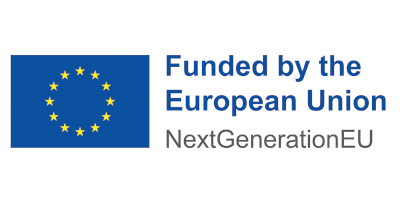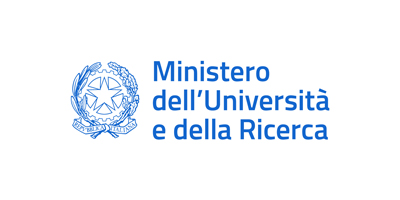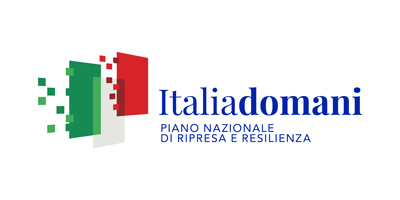Research
The aim of the project is to make available to public and private actors an accessible open data platform - AMELIA dAta platforM for the transfEr of knowLedge and statistIcal Analysis - operational in real time, building integrated repositories and data analysis from heterogeneous sources. It will offer tools to support fundamental and applied research for firms and households and for policy analysis and evaluation of public administrations’ actions.
Features of AMELIA platform
The platform will make several important contributions. First, AMELIA will significantly contribute to data collection and integration, with special emphasis on integration of geo-referenced data. By combining competencies from a wide range of domains, which are typically not readily available in single institutions and/or firms, GRINS is in a unique position to successfully achieve this goal.
Differently from other data-related initiatives, AMELIA will collect and integrate primary and secondary data sources. Its main value added will be to integrate different data sources into a single platform that can be used for research and policy analysis and decision-making.
AMELIA will be oriented to the final users (the research community, the public administration, households, firms, companies and investors) with a threefold mission:
- Provide new data and release existing data in open form whenever possible
- Develop tools to process these data and to build accessible knowledge to stakeholders
- Promote a culture of evidence and science-based policy decisions and a close interplay among public administration, academia and research institutions and firms
Through AMELIA, GRINS will produce high quality and statistically validated data, analyses and research tools by combining methods from different disciplines. More specifically, it will combine data on firms, households and institutions with state-of-the-art econometric and statistical methods in order to evaluate the determinants of different stakeholders’ sustainability and resilience in Italy.
The AMELIA platform will allow GRINS to produce, through theoretical, empirical and experimental research, a sound methodological framework to analyze the consequences of environmental and economic shocks on households, firms, investors and the public sector, how policies can mitigate the impact of these shocks and those that arise from the digital and green transition as well as ongoing critical situations (post-pandemic and conflicts).
GRINS will invest substantial resources to create easily accessible dashboards and graphical interactive interfaces and web-apps to make data and output from data easily accessible to final users.
The relatively short time-frame in which GRINS operates within the ambitious targets set above, necessarily imply that some initiatives will be tested in pilot studies. These pilot studies relate to a variety of actions: technical and procedural innovations in data handling, creation of Laboratories, training initiatives, capacity building programs, new networks of research and policy analysis.
As a main medium/long term impact, GRINS will also increase the private sector awareness of the transformative role it can play in driving and financing the transition to a more inclusive and sustainable economy. These efforts will reduce the gap between societal sustainability objectives and the necessary reforms and investments for the ecological transition. This is an important legacy of the project along with the increased awareness of all stakeholders to mainstream sustainability in their choices and investments’ considerations.
One of the objectives of GRINS is to create an environment for the growth of human capital and research that leverages the best skills of young researchers. A large and significant part of the stakeholder engagement will occur through training activities that will involve PhD students, young researchers and several private and public employees who will be exposed to the GRINS activities during the three-year project with significant spillovers on the civil society.
GRINS is committed to a balanced participation and gender equality in all aspects of the project through a representation of genders in management, innovation activities, communication, dissemination and outreach activities. Our goal is to place emphasis on the gender equality rights of all partners, by developing and implementing a Gender Equality Plan (GEP) and a code of conduct and ethical behavior to leverage the equality between men and women and to give the same job opportunities to all, only based on competencies and skills.
Work Packages (WP) of the Spoke 4
WP1 - ESG risk dimensions and their impact on investors and SMEs
Assess and measure the relevant risks and impact of sustainable investing as to mainstream sustainability considerations in investors’ risk management (both retail, company and system levels) and in the use of new sustainable finance instruments.
WP2 - Digital finance, inclusion and green/young entrepreneurship
Improve financial inclusion and funding to individuals and SMEs, measuring risks and leveraging the inclusionary nature of digital finance, as well as the complementarity to capital markets in line with the EU Capital Markets Union with attention to new green/young enterprises.
WP3 - Assessment of climate change impact, physical and transition risks
Innovate financial and quantitative approaches to climate change impact by coherently including complexity, uncertainty, and ambiguity dimensions to properly deal with financial and sustainability risks. Deal with physical and transition risks both for investors, firms and the whole system.
WP4 - Public debt and the financial system under Compounding Risks
Public debt management and sustainability monitoring. Assess long-term debt vulnerability under stress scenarios: from pandemic to climate-related events also under compound risk. Evaluate the effects of fiscal rules and unconventional monetary policies in crisis times.




